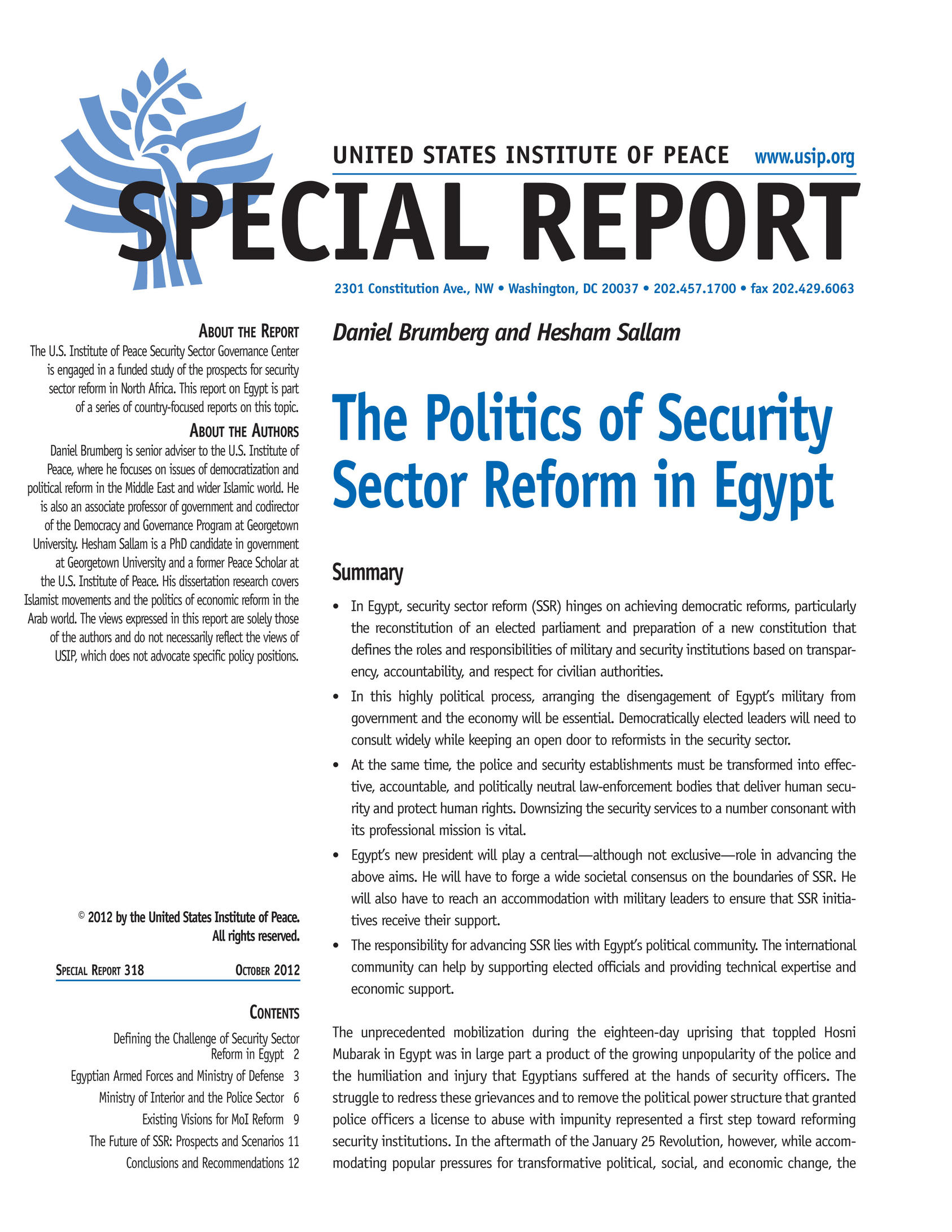By building a strong coalition around the need to reform Egypt’s military and interior ministry, Egypt’s political groups can move toward the critical goal of subordinating its military and security establishment to civilian authority.

Summary
- In Egypt, security sector reform (SSR) hinges on achieving democratic reforms, particularly the reconstitution of an elected parliament and preparation of a new constitution that defines the roles and responsibilities of military and security institutions based on transparency, accountability, and respect for civilian authorities.
- In this highly political process, arranging the disengagement of Egypt’s military from government and the economy will be essential. Democratically elected leaders will need to consult widely while keeping an open door to reformists in the security sector.
- At the same time, the police and security establishments must be transformed into effective, accountable, and politically neutral law-enforcement bodies that deliver human security and protect human rights. Downsizing the security services to a number consonant with its professional mission is vital.
- Egypt’s new president will play a central—although not exclusive—role in advancing the above aims. He will have to forge a wide societal consensus on the boundaries of SSR. He will also have to reach an accommodation with military leaders to ensure that SSR initiatives receive their support.
- The responsibility for advancing SSR lies with Egypt’s political community. The international community can help by supporting elected officials and providing technical expertise and economic support.
About the Report
The U.S. Institute of Peace Security Sector Governance Center is engaged in a funded study of the prospects for security sector reform in North Africa. This report on Egypt is part of a series of country-focused reports on this topic.
About the Authors
Daniel Brumberg is senior adviser to the U.S. Institute of Peace, where he focuses on issues of democratization and political reform in the Middle East and wider Islamic world. He is also an associate professor of government and codirector of the Democracy and Governance Program at Georgetown University. Hesham Sallam is a PhD candidate in government at Georgetown University and a former Peace Scholar at the U.S. Institute of Peace. His dissertation research covers Islamist movements and the politics of economic reform in the Arab world. The views expressed in this report are solely those of the authors and do not necessarily reflect the views of USIP, which does not advocate specific policy positions.